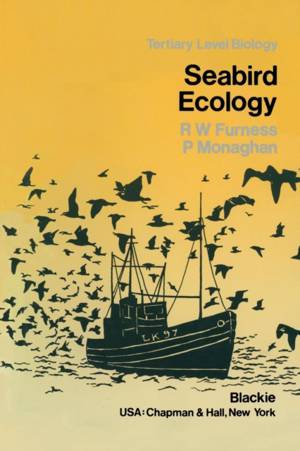
- Afhalen na 1 uur in een winkel met voorraad
- Gratis thuislevering in België vanaf € 30
- Ruim aanbod met 7 miljoen producten
- Afhalen na 1 uur in een winkel met voorraad
- Gratis thuislevering in België vanaf € 30
- Ruim aanbod met 7 miljoen producten
Zoeken
Omschrijving
In the last few years there has been an excltmg upsurge in seabird research. There are several reasons for this. Man's increased ex- ploitation of natural resources has led to a greater awareness of the potential conflicts with seabirds, and of the use of seabirds to indicate the damage we might be doing to our environment. Many seabird populations have increased dramatically in numbers and so seem more likely to conflict with man, for example through competition for food or transmission of diseases. Oil exploration and production has resulted in major studies of seabird distributions and ecology in relation to oil pollution. The possibility that seabirds may provide information on fish stock biology is now being critically investigated. Some seabird species have suffered serious declines in numbers and require conservation action to be taken to reduce the chances that they will become extinct. This requires an understanding of the factors determining their population size and dynamics.
Specificaties
Betrokkenen
- Auteur(s):
- Uitgeverij:
Inhoud
- Aantal bladzijden:
- 166
- Taal:
- Engels
- Reeks:
Eigenschappen
- Productcode (EAN):
- 9781461292401
- Verschijningsdatum:
- 6/10/2011
- Uitvoering:
- Paperback
- Formaat:
- Trade paperback (VS)
- Afmetingen:
- 152 mm x 229 mm
- Gewicht:
- 249 g

Alleen bij Standaard Boekhandel
+ 213 punten op je klantenkaart van Standaard Boekhandel
Beoordelingen
We publiceren alleen reviews die voldoen aan de voorwaarden voor reviews. Bekijk onze voorwaarden voor reviews.











